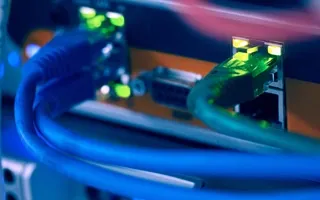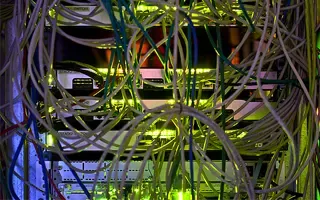Network Fundamentals: Top Picks
Network Fundamentals
Need for Speed – The Data Tsunami & Advancements…
A long-long time ago (not long ago in earth time) 100 Mbps was THE technology. 100 Mbps uplinks bundled with ether-channel was the ultimate uplink te…
Network Fundamentals
The Importance of a Network Analyzer – Packet Sni…
Network Analyzers, also known as Packet Sniffers, are amongst the most popular network tools found inside any Network Engineer’s toolkit. A Network A…
Network Fundamentals
Power over Ethernet - Understanding PoE Technolog…
Power over Ethernet (PoE) was invented by PowerDsine back in 1997 and the first power injector (Midspan) was installed in 1998! Many manufacturespart…
Network Fundamentals
Network Data Transmission
Network data transmission refers to the process of sending and receiving information between two or more devices connected to a network. It is a crit…
Featured Subcategories:
Netflow Articles:
Netflow
Complete Guide to Netflow: How Netflow & its Comp…
This article will cover the basics of Netflow, including its use cases, Netflow supported devices, Netflow history, and variants. We’ll also dive int…
Netflow
NetFlow Analyzer: Free Download, Step-by-Step Ins…
In our previous article we explained how a Netflow Analyzer can help you gain visibility into your user traffic, application traffic and data flows w…
Netflow
Netflow vs SNMP. Two Different Approaches to Netw…
SNMP (Simple Network Management Protocol) and Netflow are both popular protocols with admins, prized for their ability to give visibility over the ne…
Netflow
Netflow: Monitor Bandwidth & Network Utilization…
Monitoring network traffic & bandwidth usage via Netflow is mandatory for any type and size network. Gaining visibility into user traffic, applic…
Network Protocols:
Domain Name System (DNS)
The DNS Protocol - Part 1: Introduction
If you ever wondered where DNS came from, this is your chance to find out ! The quick summary on DNS's history will also help you understand why DNS…
Subnetting
IP Subnetting - Part 3: Subnet Mask Bits & Analys…
So we have covered to some depth the subnetting topic, but there is still much to learn ! We are going to explain here the available subnet masks and…
TCP - UDP Protocol Analysis
TCP Header Anaylsis - Section 5: TCP Window Size…
Our fifth section contains some very interesting fields that are used by the TCP transport protocol. We see how TCP helps control how much data is tr…
Subnetting
IP Subnet Calculator
This free online Subnet Calculator provides a fast and easy way to calculate all aspects of any IP Address and Subnet Mask. Simply enter your desir…
TCP - UDP Protocol Analysis
Transmission Control Protocol - Part 4: In-Depth…
This article is an introduction to the 7-page TCP Header analysis section that follows. We briefly view each section of the TCP Header and then move…
Subnetting
IP Subnetting - Part 2: Subnet Masks & Their Effe…
There are a few different ways to approach subnetting and it can get confusing because of the complexity of some subnets and the flexibility they off…
TCP - UDP Protocol Analysis
TCP Header Anaylsis - Section 3: TCP Header Lengt…
The third field under close examination is the TCP Header length. There really isn't that much to say about the Header length other than to explain w…
Subnetting
IP Subnetting - Part 1: The Basic Concepts
When we subnet a network, we basically split it into smaller networks. For example, when a set of IP Addresses is given to a company, e.g 254 they mi…
STP/ICMP Protocols:
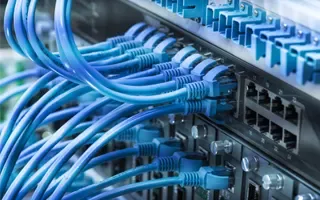
Spanning Tree Protocol (STP)
Spanning Tree Protocol – Part 1: Understand STP P…
One of the most used terms in network is LAN (Local Area Network). It’s a form of network that we encounter in our daily lives, at home, at work, stu…
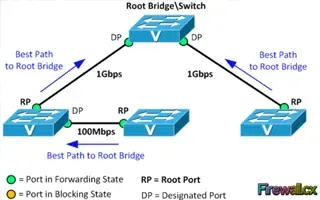
Spanning Tree Protocol (STP)
Spanning Tree Protocol – Part 2: Rapid STP Port C…
Spanning Tree Protocol, Rapid STP port costs and port states are an essential part of the STP algorithm that affect how STP decides to forward or blo…
ICMP Protocol
ICMP Protocol - Part 4: Destination Unreachable M…
The 'ICMP Destination unreachable' message is quite interesting, because it doesn't actually contain one message, but infact six! This means that the…
ICMP Protocol
ICMP Protocol - Part 1: Introduction
The Internet Control Message Protocol (ICMP), is a very popular protocol and actually part of an Internet Protocol (IP) implementation. Because IP wa…
Wi-Fi Key Generator
Follow Firewall.cx
Cisco Password Crack
Decrypt Cisco Type-7 Passwords on the fly!
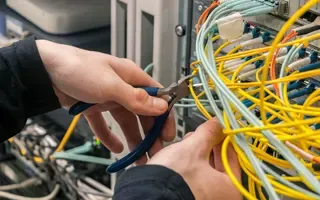
VLAN Networks
VTP Pruning
VTP (VLAN Trunking Protocol) pruning is a feature that is used in Cisco switches to reduce unnecessary traffic in VLAN (Virtual Local Area Network) trunks…
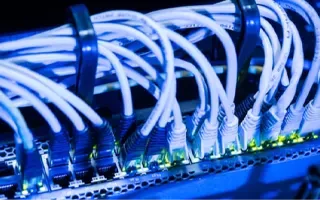
VLAN Networks
Dynamic VLANs
Dynamic VLANs were introduced to grant the flexibility and complexity(!) that Static VLANs did not provide. Dynamic VLANs are quite rare because of their…
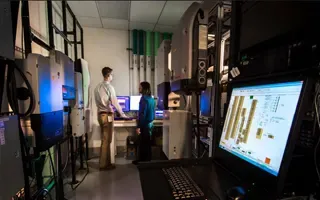
VLAN Networks
VTP Protocol - In-Depth Analysis
The previous article introduced the VTP protocol, we examined how it can be used within a network, to help manage VLANs and ease the administrative overhe…
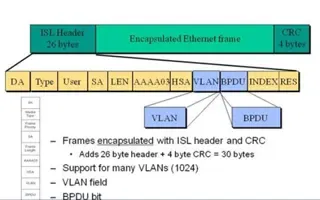
VLAN Networks
VLAN InterSwitch Link (ISL) Protocol Analysis
Deciding whether to use ISL or IEEE 802.1q to power your trunk links can be quite confusing if you cannot identify the advantages and disadvantages of eac…
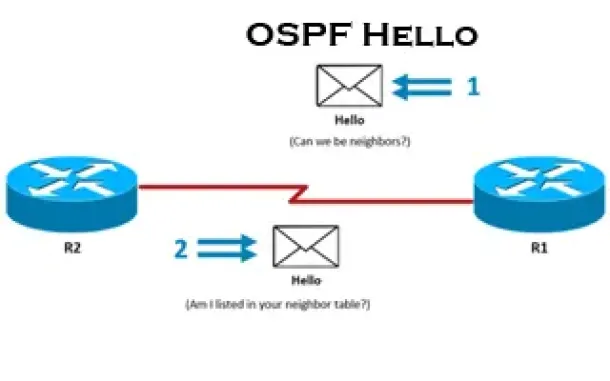
Routing
OSPF - Part 3: OSPF Adjacency & Neighbor Forming Proce…
This is the thrid article of our 6-part OSPF series (see below) that describes how OSPF routers perform neighbor relationship and adjacency. We’ll examine…
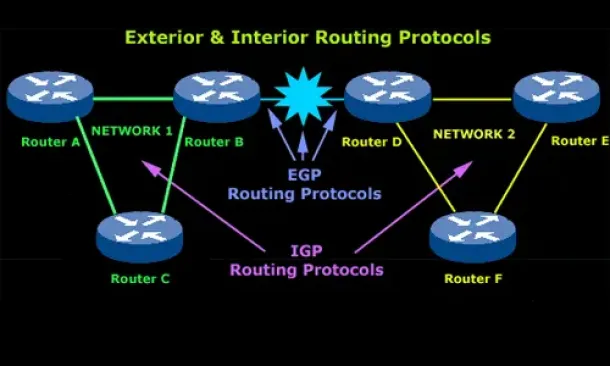
Routing
Introduction to Routing Protocols
Distance Vector, Link State RIP, IGRP, EIGRP, OSPF
Routing protocols were created for routers. These protocols have been designed to allow the exchange…
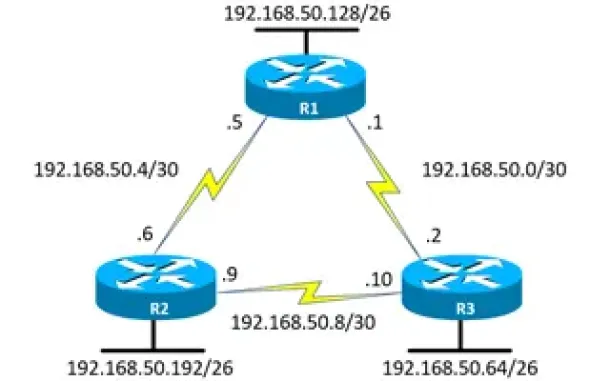
Routing
Enhanced Interior Gateway Routing Protocol - EIGRP
Enhanced Interior Gateway Routing Protocol (EIGRP), similar to IGRP, is a Cisco proprietary routing protocol that is used to exchange routing information…
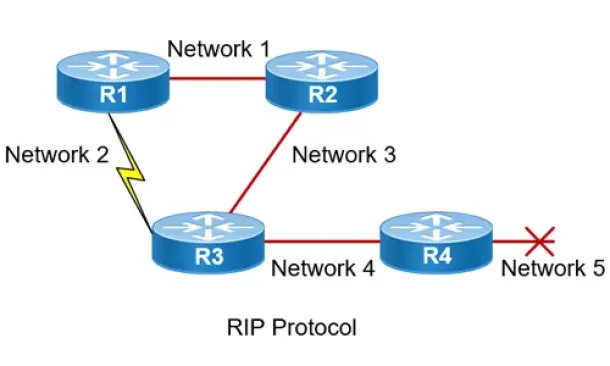
Routing
Routing Information Protocol - RIP
Routing Information Protocol (RIP) is a distance-vector routing protocol that is commonly used in small to medium-sized networks. It is one of the o…
Network Address Translation - NAT
Static NAT - Part 1
Static NAT (also called inbound mapping) is the first mode we're going to talk about and also happens to be the most uncommon between smaller networks.
S…
Network Address Translation - NAT
Network Address Translation (NAT) Concepts
Before we dive into the deep waters of NAT, we need to make sure we understand exactly what NAT does. So let me give you the background of NAT, why it's h…
Network Address Translation - NAT
Static NAT - Part 2
The previous page (Static NAT - Part 1) helped us understand what exactly happens with Static NAT and how it works, and we saw a few examples of how to us…
Network Address Translation - NAT
Network Address Translation (NAT) Overload - Part 2
In our previous article, Network Address Translation (NAT) Overload - Part 1, we explained what NAT Overload is and how it works. This page deals with the…







